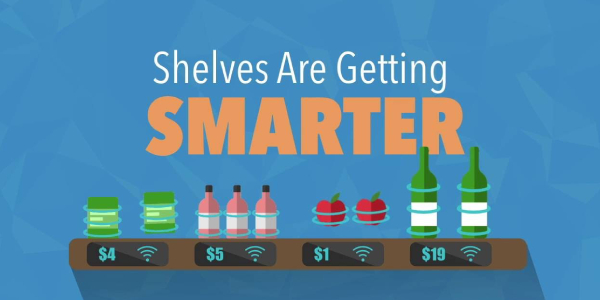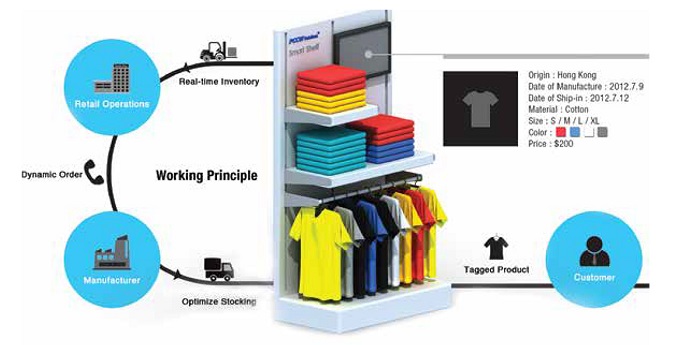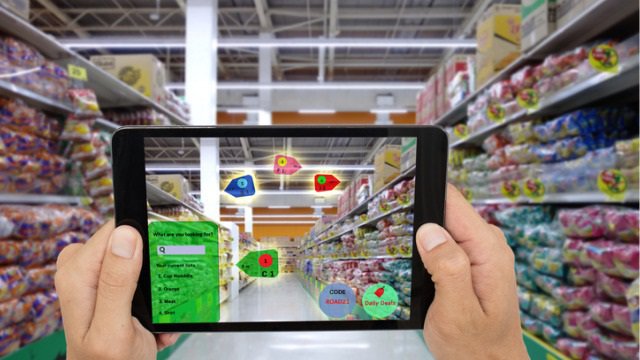Digital Transformation in Racks/Shelves Manufacturing

In supermarkets, you often see retailers putting in lots of effort to keep track of products that were sold and the number of products left in the shelves, according to which they are supposed to refill. But the data may not always be accurate since thefts may have happened and would have gone unnoticed. It is the digital era and the influence of technology can be seen everywhere and therefore, the best solution invented to tackle the above-mentioned issue is the smart shelf or rack, which incorporates technology. When the whole world is going digital and finding it advantageous, why not the retail sector adopt it as well?
How smart shelves work
The retail sector has been adapting to smart shelf technology since 2003. Also known as intelligent shelves, the smart shelves are just the normal slotted angle racks found in supermarkets to place products, but are equipped with radio frequency ID (RFID) sensors that collect data, such as the number of items left on the shelf. The data is collected from the tags or packages of the products that are embedded with sensors and the information becomes part of what is called the Big Data Highway. It is a part of the Internet of Things (IoT).
Apart from that, smart shelves can benefit the retailers in the following ways.
In case a product has been displaced or stolen, the RFID sensors can be used to track them. This can also help prevent potential theft of the products in the future. Also, it makes billing easier since the sensors connect to the billing screens and provide product information. The sensors also provide data regarding sales. This helps retailers to identify the preferences of customers and allow optimization of products. Since the technology is still advancing, smart-shelf systems may soon allow retailers to provide personalized offers to consumers with regard to the products they reject, which can help boost sales. Among the cities in India, Chennai is known to be the best manufacturer of smart shelves and slotted angle racks.

Does it affect consumer privacy?
Privacy concerns are a part of anything related to technology. Therefore, an RFID shelf inventory control system testing is always performed before installing it to ensure that there is no security breach. However, consumer privacy groups still oppose smart shelves as they are concerned about potential abuses that might happen in case product tracking tags are taken home from the stores.
Smart shelves have already been tried by many famous retailers and many of them have decided to continue with it. Though Walmart did not find success in the venture, Kroger had successfully tested the RFID shelf inventory control system in 2015 and had later adopted the technology to the stores. They use the technology to show the video images of price tags and to provide product information to consumers. The normal price tags can be easily changed to the one with sensors, which give the staff more time to meet customer requirements. Meanwhile, Coca Cola is currently performing tests on a smart-shelf marketing device that uses facial recognition through artificial intelligence tools. A digital screen displaying digital ads is placed on the shelves, which contains optical sensors that record the facial expressions of customers from which their preferences can be assumed. With more retailers coming forward to adopt the technology, privacy concerns can now be put aside.

Why are smart shelves/racks likely the future?
Though the technology has been part of the market since 2003, smart shelves/racks have started gaining attention only in the last few years. For the retail sector to adapt to the smart shelf technology, it may still take a while. Retailers also have a role to play in the process as they give preference to the customer requirements. This can further boost the manufacturing of smart shelves or racks.
Coop Italia, Italy’s largest grocery chain, has been using smart-shelf technology since December 2016, where they have placed touch screens near goods, which provides customers with detailed information about products. Also, reports suggest that the retailers of U.K. have also begun to use the technology. https://www.itproportal.com/features/create-the-store-of-the-future-today/ – Check Out the latest updates of retail stores here.
With the recent trends in the retail sector, it is safe to say that retailers are bound to get smarter and efficient by adapting smart shelf technology.